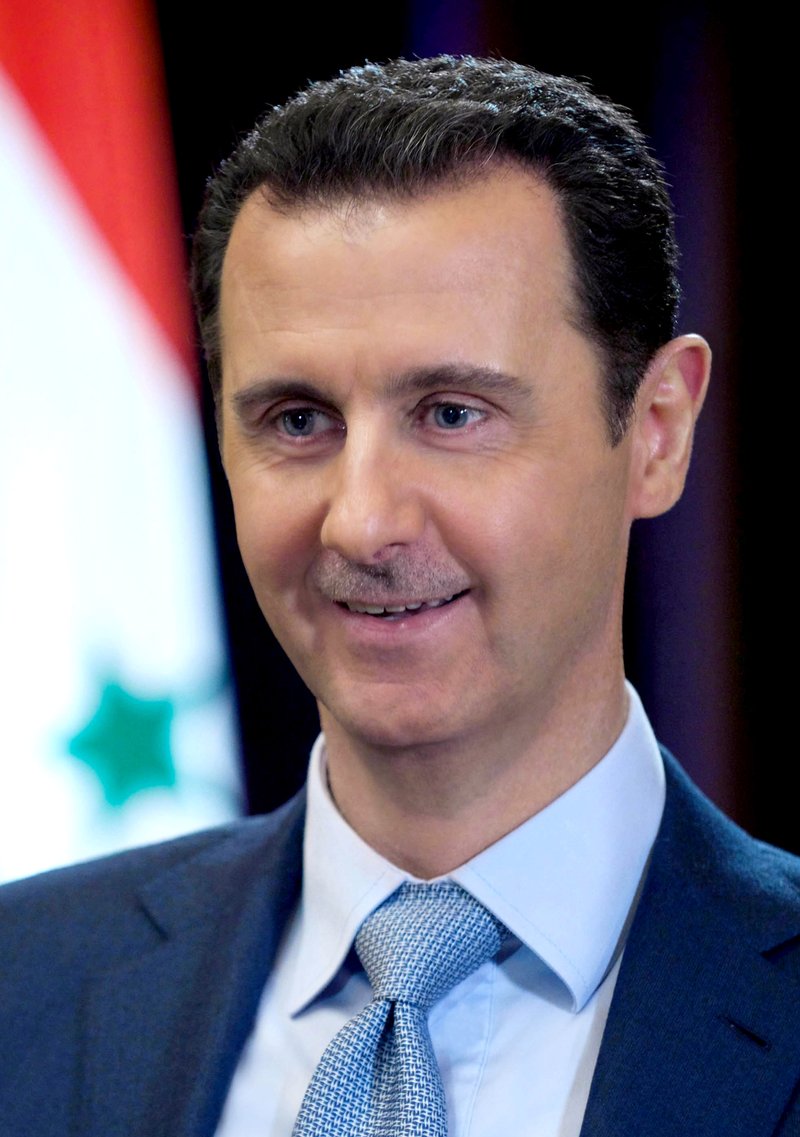BEIRUT -- Syrian President Bashar Assad has proposed a national unity government and rejected a key opposition demand for a transitional ruling body with full powers, in remarks published Wednesday that stand to complicate international peace efforts.
In an interview with Russia's state news agency Sputnik, Assad also said the recapture of the ancient city of Palmyra from the Islamic State extremist group "is a result of our determination to clean all of Syria from terrorists."
He said his forces would continue to advance toward the Islamic State's declared capital, Raqqa, and the far eastern city of Deir el-Zour, most of which is held by the extremists.
Syrian government forces, aided by allied militias and Russian airstrikes, have advanced on a number of fronts in recent months, and in the interview a visibly buoyant Assad showed little interest in acceding to the opposition's demands.
"First of all, regarding the definition of the 'transitional period,' such a definition does not exist," Assad said in the interview with Sputnik, which published excerpts on its website.
"The transition period must be under the current constitution, and we will move on to the new constitution after the Syrian people vote for it," Assad said.
His comments run counter to demands by the Syrian opposition for a "transitional body with full executive powers," which major powers agreed on at a Geneva conference in June 2012. That agreement remains the basis of talks mediated by the United Nations and set to resume in April.
"Bashar Assad can say whatever he wants, but the Geneva Communique and Security Council resolutions talk about something else," said George Sabra, a negotiator for the Higher Negotiating Committee representing the Syrian opposition at talks in Geneva, which are set to resume next month.
Sabra said a national unity government that dilutes the current Cabinet with members of the opposition was "absolutely out of the question."
A road map for a transition in Syria outlined in a U.N. Security Council resolution adopted in December calls for a Syrian-led political process facilitated by the U.N. which would establish "credible, inclusive and non-sectarian governance" within six months and set up a schedule and process for the drafting of a new constitution to be followed by U.N.-supervised elections.
Assad said a national unity government would be formed by various Syrian political forces -- "opposition, independent, the current government and others."
"Neither the Syrian Constitution, nor the constitution of any other country in the world includes anything that is called a transitional body of power. It's illogical and unconstitutional," he said.
In excerpts of the interview published on the Syrian presidency's Facebook page, Assad also dismissed a recent declaration of a federal region by Syria's main Kurdish faction, saying that Syria is not ready for federalism.
He claimed most Kurds want to live in a unified Syria under a central leadership and that if put to a referendum, the choice of federalism would not be approved by a majority of Syrians.
Early Wednesday, Syria's state-run news agency said Assad sent a message to the U.N. secretary-general reiterating his readiness to cooperate with all "sincere" efforts to fight terrorism.
Assad also thanked Ban Ki-moon for the U.N. chief's statements welcoming the Syrian army's recapture of Palmyra and its world-famous archaeological site from Islamic State militants. The state-run Syrian Arab News Agency says Assad also urged the U.N. chief to support the Syrian government's efforts in rebuilding Palmyra.
Ban had said Sunday that the world body is "encouraged and fortunate" that Syrian troops retook Palmyra.
Russia meanwhile said that it has sent combat engineers to help clear mines in Palmyra. The Defense Ministry said Wednesday that the units airlifted to Syria have an array of equipment, including state-of-the art robotic devices, to defuse mines at the city's 2,000-year-old archaeological site.
Russian television stations broadcast the footage of combat engineers boarding a military transport plane at an air base outside Moscow. The team included sniffer dogs.
Russian President Vladimir Putin ordered a partial drawdown of Russian warplanes from Syria earlier this month, but he said that Moscow will continue to strike the Islamic State and the al-Qaida-linked Nusra Front.
Meanwhile, the U.N. humanitarian chief said desperately needed aid has reached only 30 percent of Syrians living in besieged areas and less than 10 percent in hard-to-reach areas this year, even with the recent cease-fire.
Stephen O'Brien told the Security Council that many of the 4.6 million Syrians in need in these areas can't be reached because of insecurity and obstruction by combatants.
He said that since the cessation of hostilities went into effect one month ago, there is "a glimmer of hope," citing far fewer civilian deaths and injuries and progress on humanitarian access.
Since the beginning of the year, he said, convoys have reached 150,000 people in 11 of the 18 besieged areas in Syria.
But O'Brien said Syria's government still hasn't approved aid for three besieged areas "mere minutes' drive away from U.N. warehouses in Damascus" -- Duma, East Harasta and Daraya.
"The situation is dreadful in these areas, particularly in Daraya, where we continue to receive reports of severe shortages of food, clean water, medicines, electricity and basic commodities, with the food security and nutrition status thought to be disastrous, with even reports of people forced to eat grass," O'Brien said.
Information for this article was contributed by Albert Aji, Vladimir Isachenkov and Edith M. Lederer of The Associated Press.
A Section on 03/31/2016


